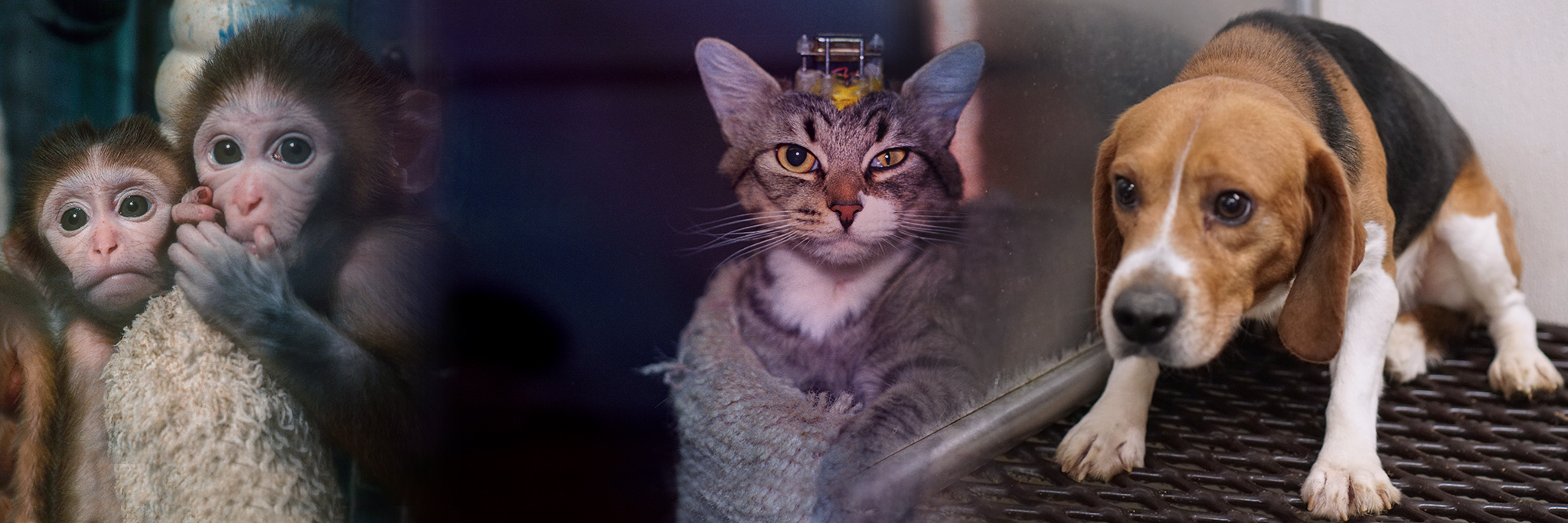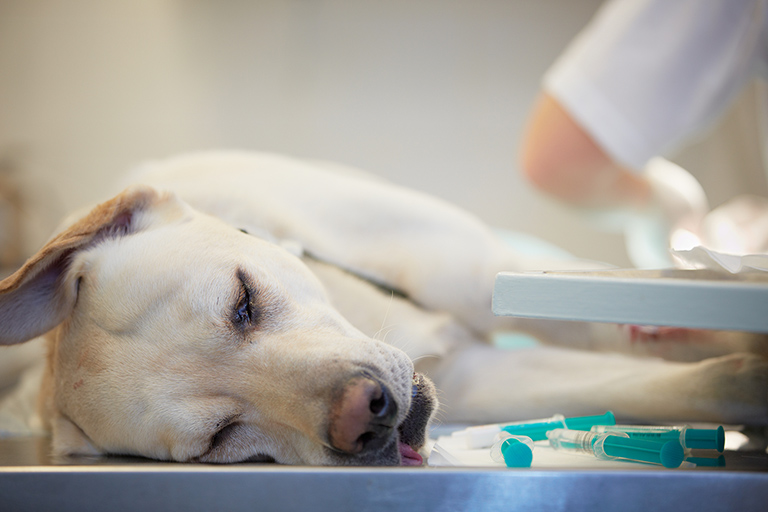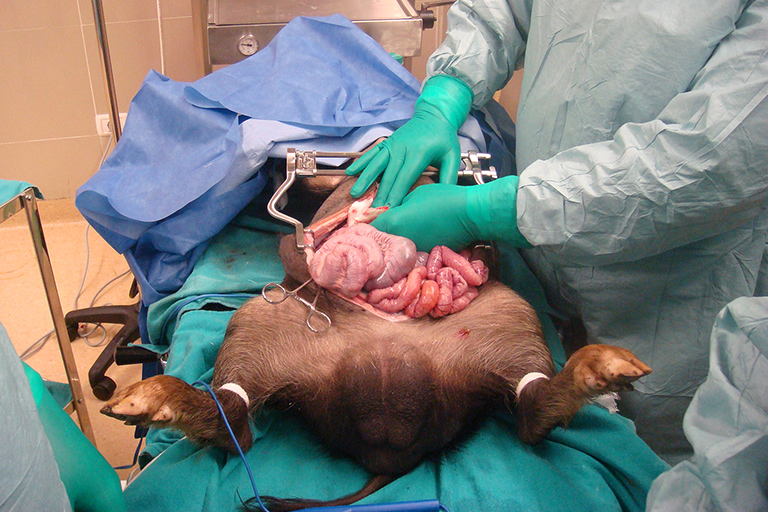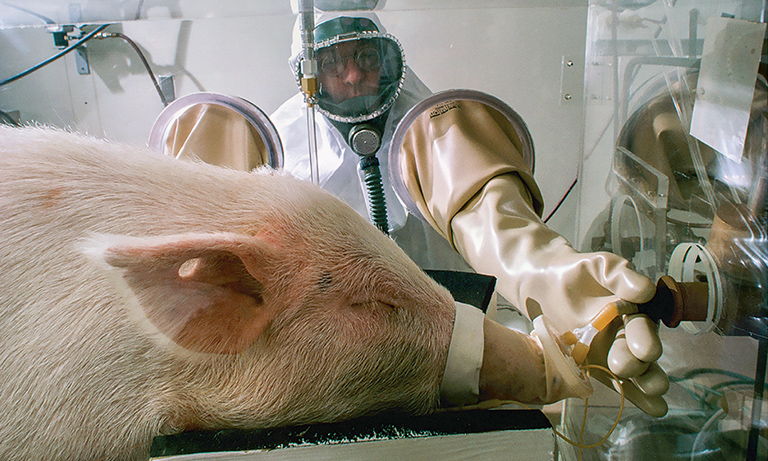VICTORY: Medical Schools End Animal Labs. Thank you Kinship Circle activists! Together, we pressured medical schools to drop animal labs from their curriculums. Physicians Committee For Responsible Medicine, a nonprofit representing over 12,000 physicians, confirms that all medical schools surveyed in the United States and Canada no longer train students with live animals. University of Tennessee, the final school to switch from animal use to human-applicable training, now imparts skills and knowledge related to human patients.
Med Schools Upgrade To Human-Focused Instruction
6/24/16 » PCRM Press Release. WASHINGTON: Physicians Committee for Responsible Medicine announces that University of Tennessee, the last remaining school to use animals, now joins all programs in the U.S. and Canada in using human-relevant training methods like advanced medical simulators. John Pippin, M.D., F.A.C.C., director of academic affairs at PCRM says: “With the decision by leaders at the University of Tennessee College of Medicine to eliminate animal use in the Surgical Skills Laboratory, we are entering the post-animal era in medical student education. Like Johns Hopkins University a month before and numerous other medical schools before that, the University of Tennessee has acknowledged that simulation and other nonanimal teaching methods supplant the cruel and unnecessary use of live animals in training physicians.”
PCRM identified a need to modernize medical education and began work on the issue in 1985. Previously, medical schools used dogs, pigs, and other animals to teach physiology, pharmacology, and surgical skills. Students were instructed to inject animals with various drugs to monitor responses and/or make incisions into an animal's abdomen to insert lighted cameras and surgical instruments. After a training session, animals were killed. Now, all medical students trained in the U.S. receive an education based on human anatomy and physiology, giving new doctors skills to care for human patients. The last 10 medical schools to switch from animals to human-relevant methods are:
- University of Tennessee
- Johns Hopkins University
- Rush Medical College
- University of Mississippi
- Oregon Health & Science University
- Uniformed Services University
- University of Virginia
- Medical College of Wisconsin
- Memorial University of Newfoundland
- University of Wisconsin
Classroom Animal Experiments Are Unwarranted
Interactive Simulators Work Better. Computerized simulators emulate human anatomy and key facets of patient care. Animal-free teaching tools are more cost effective and facilitate applicative learning about human health and safety. Simulators, unlike dogs or pigs, allow students to learn at their own pace and repeat procedures as many times as necessary. Still, schools such as Medical College of Wisconsin used dogs and pigs in physiology labs. In one drill (now shut down) students work with anesthetized and intubated dogs. During a five-hour procedure, they connect a shaved dog to a computer via intravenous probes to observe the animal's pulse. They then expose the dog's heart (with scalpels and bone saws), inject chemicals, shock the heart with electrical paddles, and maneuver it by hand. Students who gain knowledge in an animal lab like this must unlearn much of it down the road. Incision pressure varies between dogs and humans. Size, location, texture and elasticity of internal organs are also vastly in incongruous. In fact, each species is so diverse in terms of anatomy, physiology, biochemistry, and genetics that animal studies have endangered humans with misleading data.
6/5/12 » Medical College Of Wisconsin's Physiology Curriculum Goes Animal-Free! After a sordid history of dog and pig labs, MCW switches to human-relevant simulators. Physicians Committee For Responsible Medicine intends to monitor university claims since MCW “retained the option to reinstitute animal use in later years.” Kinship Circle, together with PCRM and others, logged lots of objections to MCW animal labs. Activists pressured MCW's Dean and Physiology Chair to replace animals with human-based teaching tools. But rather than upgrade, MCW substituted dogs with pigs. Persistent demands prompted MCW to stop pig use and try a computer-based system. Still, the school used rabbits, frogs and rats in procedures. We are on standby in case MCW backslides!
A Better Way…















